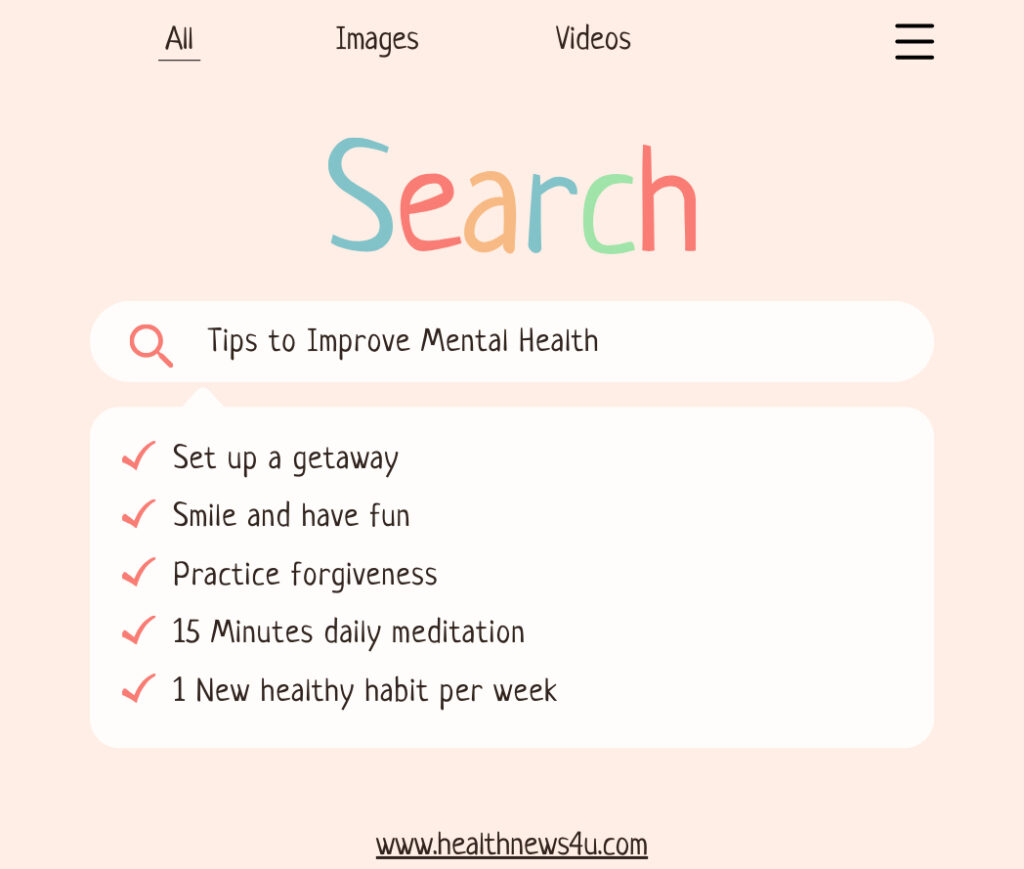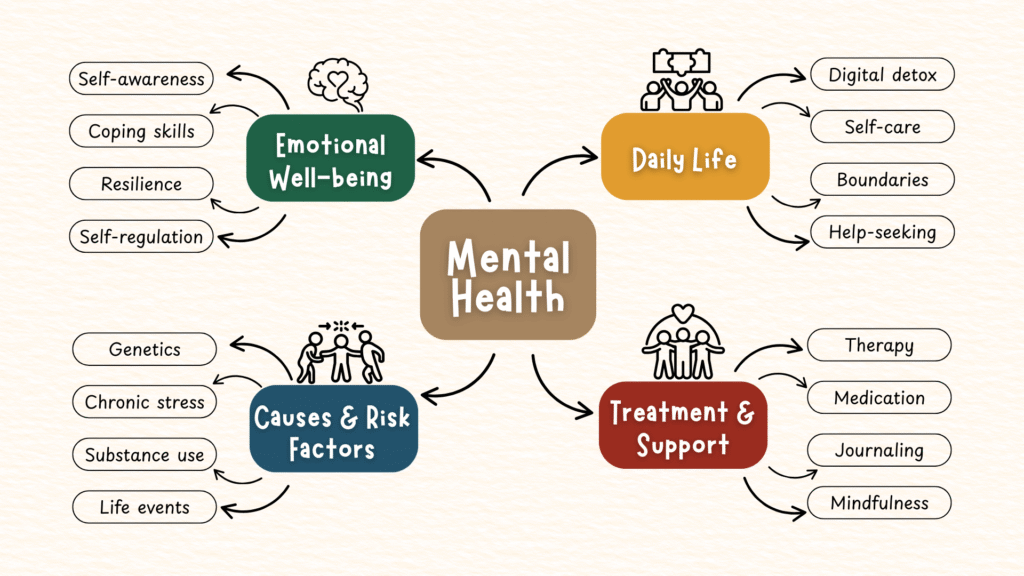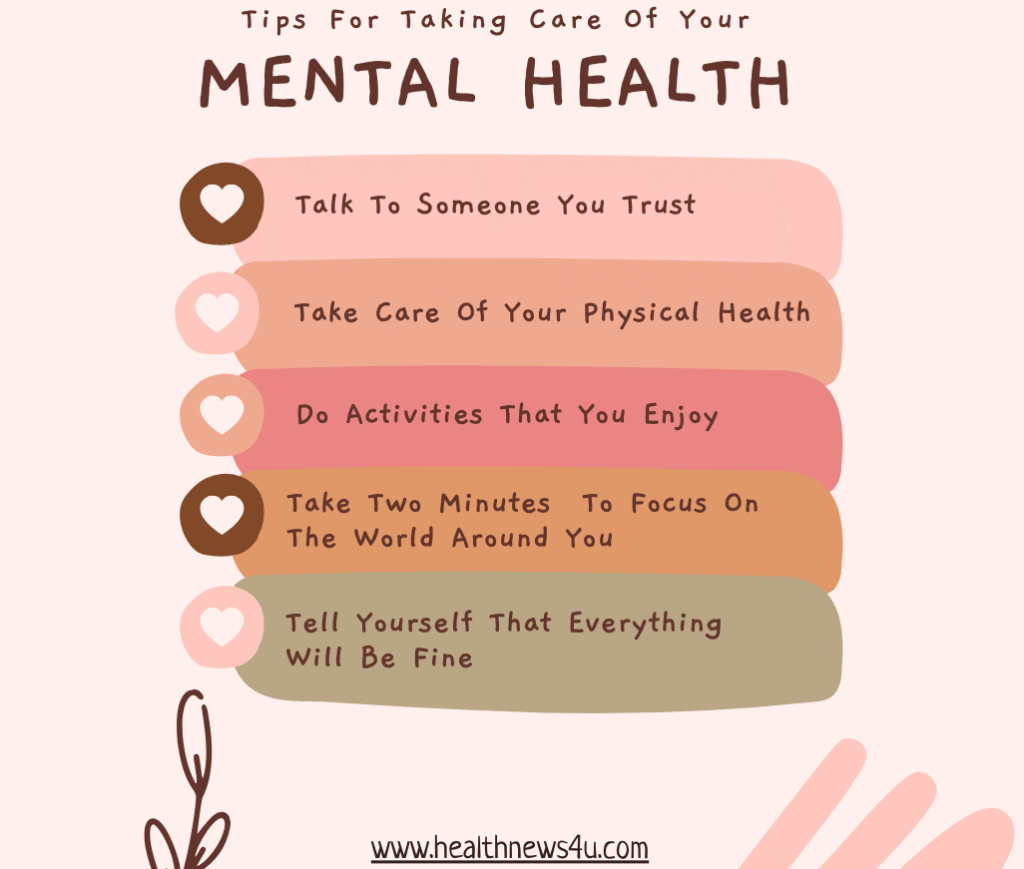
Mental health is as important as physical health, yet it’s often overlooked. One of the most powerful, natural ways to support both mind and body is through regular exercise. Studies show that physical activity not only strengthens the body but also plays a vital role in improving mood, reducing anxiety, and enhancing overall wellness.
In this article, we’ll explore why exercise is a key component of mental health, how it impacts the brain, and practical tips to stay active in daily life.

🧠 How Exercise Boosts Mental Health
1. Reduces Stress and Anxiety
Physical activity lowers the body’s stress hormones (like cortisol) and triggers the release of endorphins — natural mood boosters. Even a 20-minute walk can reduce anxiety levels.
2. Improves Mood and Self-Esteem
Exercise promotes the release of serotonin and dopamine, chemicals linked to happiness and motivation. This helps combat depression and enhances self-confidence.
3. Enhances Brain Function
Regular exercise improves memory, focus, and learning by increasing blood flow to the brain. It also helps protect against age-related cognitive decline.
4. Supports Better Sleep
Good sleep is essential for mental health, and exercise regulates sleep cycles, helping you fall asleep faster and enjoy deeper rest.
5. Provides Social Connection
Group workouts, sports, or yoga classes create opportunities for social interaction — a crucial element for emotional well-being.

🏋️ Types of Exercises for Mental Wellness
- Aerobic Exercise: Running, cycling, swimming → boosts mood & energy.
- Strength Training: Weight lifting or resistance workouts → builds confidence & reduces anxiety.
- Yoga & Meditation: Improves mindfulness, reduces stress, enhances relaxation.
- Walking & Outdoor Activities: Exposure to fresh air and sunlight improves vitamin D levels and fights seasonal depression.
🌿 Tips to Incorporate Exercise Into Daily Life
- Start small: 15–20 minutes a day.
- Choose activities you enjoy — dancing, hiking, or team sports.
- Make exercise part of your routine (same time daily).
- Use technology (fitness apps, smartwatches) to stay motivated.
- Remember: Consistency matters more than intensity.
📌 Quick Benefits of Exercise on Mental Health
- Lowers stress and anxiety
- Improves mood and energy
- Boosts confidence and self-worth
- Enhances brain power
- Improves sleep quality
- Encourages social interaction

✅ Conclusion
Exercise is more than just a way to stay fit — it’s a natural therapy for the mind. By making physical activity a regular part of your lifestyle, you can reduce stress, improve mood, and enhance your overall well-being. Start small today, and your mind and body will thank you tomorrow.
How much exercise is needed for mental health benefits?
Experts recommend at least 150 minutes of moderate exercise per week for mental and physical well-being.
Can exercise replace therapy or medication?
Exercise supports mental health but should not replace professional treatment. It works best alongside therapy or medical care.
What exercises are best for reducing anxiety?
Yoga, walking, jogging, and breathing exercises are highly effective for lowering anxiety.
Can daily walking improve mental health?
Yes, even a 20–30 minute daily walk can significantly improve mood and reduce stress.


